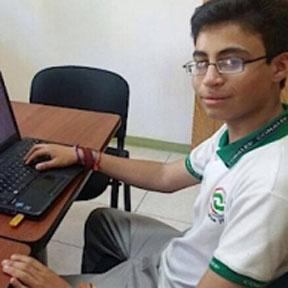
Etiopia, la Guerra que a Nadie le Importa
Ethiopia, the War Nobody Cares About
“La región lleva casi dos años sin internet y sin teléfono, se ha cortado la electricidad para que la gente no pueda cargar sus dispositivos y grabar o tomar fotografías”, declara Laetitia Bader, directora de Human Rights Watch en el Cuerno de África.
Federalismo Etnolingüístico
La República Federal de Etiopía, es un país con más de 85 etnias y una mayoría religiosa de cristianos y musulmanes, cuyo ideal político fue crear una coalición con participación de todas las etnias.
Cabe acotar que entre 1974 y 1991, en medio de la Guerra Civil, el país fue dominado por la etnia “Tigray”, que solo representaban el 7 %, enfrentados con los “Oromo” y los “Amhara”, dos grupos étnicos que suman el 60 % de la población.
El intento de democratización comienza en 1991 con la creación del Partido de la Prosperidad (Oromo), que se une al Partido Democrático (Amhara) y el Movimiento Popular (Tigray) para dar a luz, en 1995, a la Constitución Federalista Multiétnica, dividiendo el país en dos administraciones autónomas, Addis Abeba (la capital) y Dire, que incluyen a nueve estados regionales etnolingüísticos.
Desde ese momento el gobierno pasa a manos de la etnia Oromo, a pesar que en junio de 2019, las fuerzas de seguridad de los Amhara intentaron un golpe de Estado, que resultó con el asesinato del jefe del Estado Mayor del Ejército de Etiopía, el presidente de la región de Amhara y su asesor principal.
La lucha en Tigray
Luego de 27 años de combate los rencores son difíciles de olvidar, por esa razón, el primer ministro Abiy Ahmed (Oromo), apoyado con armamento y tecnología de los Emiratos Árabes, Turquía e Irán, ha sitiado al Estado de Tigray, al norte del país, privándolo de alimentos, medicinas y electricidad.
En este bloqueo colaboran el ejército etíope, las milicias étnicas y las tropas de Eritrea, cuyo líder autoritario Isaias Afwerki, no ve con buenos ojos a la etnia Tigray.
En los últimos dos años miles de tigrayanos han sido expulsados de sus hogares por las milicias de la etnia amhara, como parte de una campaña de limpieza étnica.
Nobel de la Paz 2019
El primer ministro Abiy Ahmed de solo 47 años, es uno de los líderes más jóvenes de África, por eso, en los primeros años de gobierno suscitó grandes esperanzas de transformar Etiopía, liberando los medios de comunicación, iniciando reformas económicas y logrando un acuerdo de paz con el líder de Eritrea, que lo llevó a ganar el Premio Nobel de la Paz en 2019.
Recordemos que, en enero del 2022, el Comité Noruego del Nobel, emitió una amonestación a Abiy Ahmed, por su falta de responsabilidad en poner fin al conflicto y no contribuir a la paz.
Guerra invisible
En este momento el bloqueo ha creado una gran crisis humanitaria, donde al menos diez millones de personas de la etnia Tigray necesitan urgente de ayuda alimentaria y sanitaria, en un conflicto multiétnico que se puede expandir por el norte de África y que amenaza desestabilizar la región.
En Etiopia hay hoy una guerra que a nadie importa, a pesar de que es un conflicto que las Naciones Unidas han calificado como Crimen de Lesa Humanidad.
“The region has been without internet and without a telephone for almost two years, electricity has been cut so that people cannot charge their devices and record or take photographs,” said Laetitia Bader, director of Human Rights Watch in the Horn of Africa.
Ethnolinguistic Federalism
The Federal Republic of Ethiopia is a country with more than 85 ethnic groups and a religious majority of Christians and Muslims, whose political ideal was to create a coalition with the participation of all ethnic groups.
It should be noted that between 1974 and 1991, in the midst of the Civil War, the country was dominated by the “Tigray” ethnic group, which only represented 7%, faced with the “Oromo” and the “Amhara”, two ethnic groups that add up to 60% of the population.
The attempt at democratization began in 1991 with the creation of the Prosperity Party (Oromo), which joined the Democratic Party (Amhara) and the People’s Movement (Tigray) to give birth, in 1995, to the Multiethnic Federalist Constitution, dividing the country into two autonomous administrations, Addis Ababa (the capital) and Dire, which include nine ethnolinguistic regional states.
Since then, the government has passed into the hands of the Oromo ethnic group, despite the fact that in June 2019, the Amhara security forces attempted a coup d’état, which resulted in the assassination of the chief of the Ethiopian Army General Staff, the president of the Amhara region and his senior adviser.
The fight in Tigray
After 27 years of combat, grudges are difficult to forget, for this reason, Prime Minister Abiy Ahmed (Oromo), supported by weapons and technology from the United Arab Emirates, Turkey and a, has besieged the State of Tigray, north of the country, depriving it of food, medicine and electricity.
The Ethiopian army, the ethnic militias and the Eritrean troops collaborate in this blockade, whose authoritarian leader Isaias Afwerki does not look favorably on the Tigray ethnic group.
In the last two years, thousands of Tigrayans have been driven from their homes by ethnic Amhara militias as part of a campaign of ethnic cleansing.
Nobel Peace Prize 2019
Prime Minister Abiy Ahmed, only 47 years old, is one of the youngest leaders in Africa, which is why, in the first years of his government, he raised great hopes of transforming Ethiopia, freeing the media, initiating economic reforms and achieving a peace with the leader of Eritrea, which led him to win the Nobel Peace Prize in 2019.
Let us remember that, in January 2022, the Norwegian Nobel Committee issued a warning to Abiy Ahmed, for his lack of responsibility in ending the conflict and not contributing to peace.
Unseen war
At this time, the blockade has created a major humanitarian crisis, where at least ten million people of the Tigray ethnic group urgently need food and health aid, in a multi-ethnic conflict that can spread throughout North Africa and threatens to destabilize the region. .
In Ethiopia today there is a war that nobody cares about, despite the fact that it is a conflict that the United Nations has classified as a Crime Against Humanity.

























